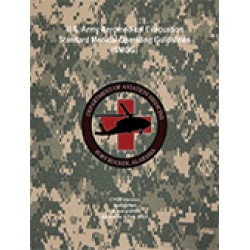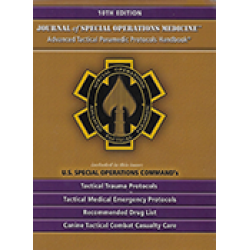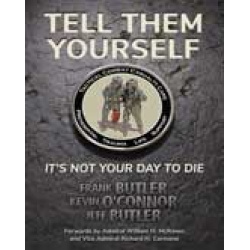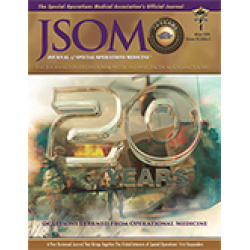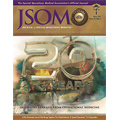Frostbite: Pathophysiology, Epidemiology, Diagnosis, Treatment, and Prevention
Knapik JJ, Reynolds KL, Castellani JW 20(4). 123 - 135 (Journal Article)
Frostbite can occur during cold-weather operations when the temperature is <0°C (<32°F). When skin temperature is ≤-4°C (≤25°F), ice crystals form in the blood, causing mechanical damage, inflammation, thrombosis, and cellular death. Lower temperatures, higher wind speeds, and moisture exacerbate the process. The frozen part or area should not be rewarmed unless the patient can remain in a warm environment; repeated freeze/thaw cycles cause further injury. Treatment involves rapid rewarming in a warm, circulating water bath 37°C to 39°C (99°F-102°F) or, if this is not possible, then contact with another human body. Thrombolytics show promise in the early treatment of frostbite. In the field, the depth and severity of the injury can be determined with laser Doppler ultrasound devices or thermography. In hospital settings, bone scintigraphy with single-photon emission computed tomography (SPECT) 2 to 4 days postinjury provides detailed information on the depth of the injury. Prevention is focused primarily on covering exposed skin with proper clothing and minimizing exposure to wind and moisture. The Generation III Extended Cold Weather Clothing System is an interchangeable 12-piece clothing ensemble designed for low temperatures and is compatible with other military systems. The Extreme Cold Vapor Barrier Boot has outer and inner layers composed of seamless rubber with wool insulation between, rated for low temperatures. The Generation 3 Modular Glove System consists of 11 different gloves and mitts with design features that assist in enhancing grip, aid in the use of mobile devices, and allow shooting firearms. Besides clothing, physical activity also increases body heat, reducing the risk of frostbite.


 Español
Español 